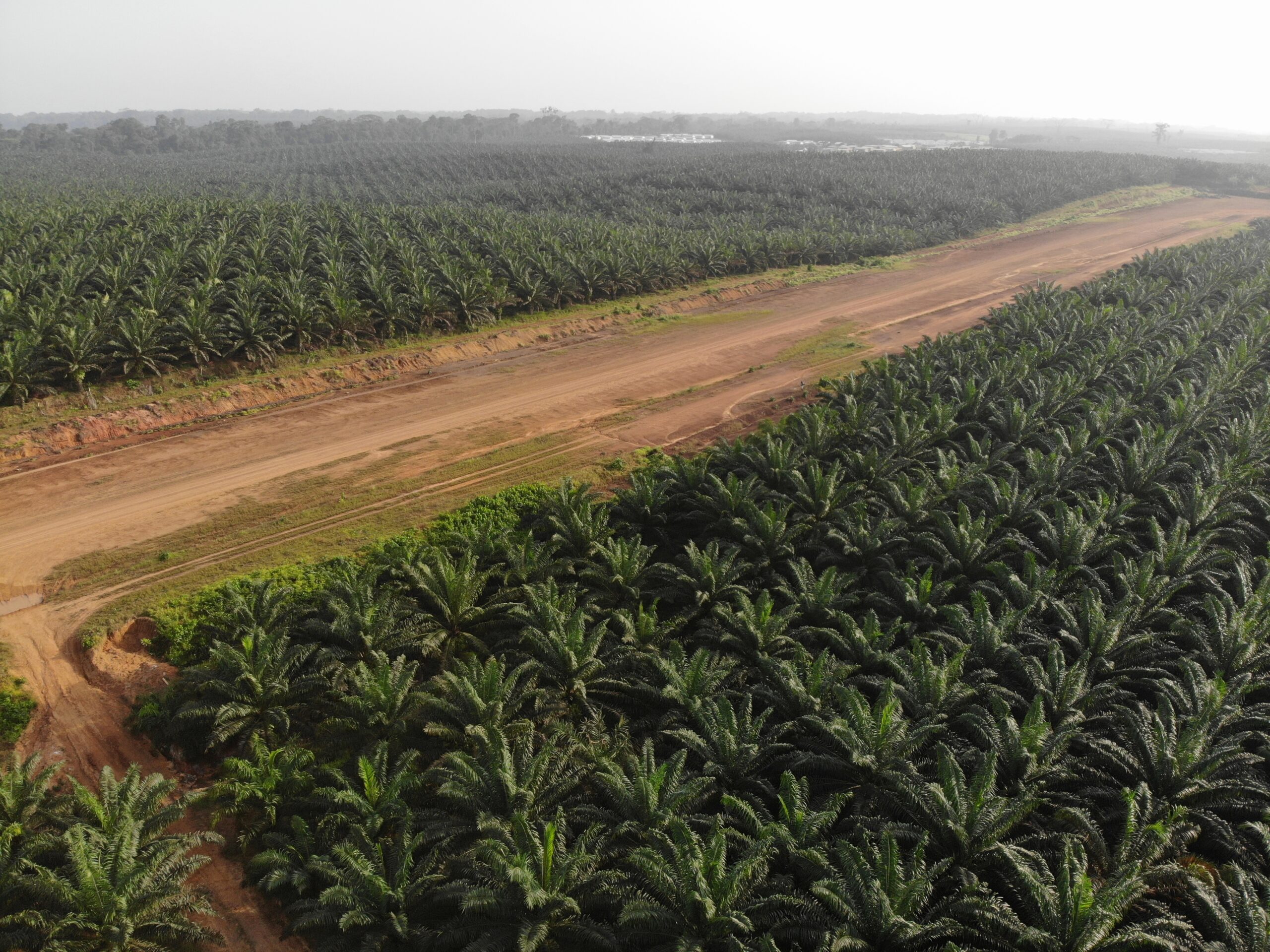Top: A drone shot of Golden Veroleum Liberia (GVL)’s plantation in Butaw, Sinoe County. The DayLight/Derick Snyder
By Gabriel M. Dixon
MONROVIA – Golden Agri-Resources (GAR), a Singaporean multinational that owns Golden Veroleum Liberia, has withdrawn from the High Carbon Stock Approach (HCSA) in a blow to local communities and campaigners’ effort to hold GVL accountable to a United Nations-recognized global anti-deforestation standard.
“We regret to inform our stakeholders that as of 1st February 2023, Golden Agri-Resources (GAR) is no longer a member of the High Carbon Stock Approach Steering Group,” HCSA said in a statement. “We thank GAR for their contribution to date and encourage them to re-apply for membership and to continue implementing the HCSA across their operations and supply chains.”
In 2022, an HCSA investigation found GVL had cleared forests with high conservation value (HCV), including the habitat of chimpanzees; wiped out several villages, and destroyed crops, sacred places, and the ancestral graves of rural people. GVL, a company funded through the Verdant Fund by Golden Agri-Resources, has a 65-year concession with the Liberian government for 350,000 hectares of land in Maryland, Sinoe, and Grand Kru counties.
The investigation came after the Sustainable Development Institute (SDI) of Liberia and its international partners—Friends of the Earth-Netherlands and Friend of the Earth-USA—lodged a grievance against GVL.
In their complaint filed on 2nd July 2018, the NGOs accused GVL and GAR of human rights violations and environmental crimes. The NGOs “question the quality of GVL’s HCS assessment” and its “failure to comply with FPIC protocols.” FPIC is an acronym for free, prior, and informed consent. It refers to the right of rural peoples to consent, on a free and informed basis, to developments that affect them and the lands on which they live. HCS stands for high carbon stock, a tool to help companies implement their ‘no deforestation’ commitments with a major focus on palm oil supply chains.
The statement added GVL did not implement its recommendations not to plant in areas where there are no conflicts, and conduct a social impact assessment with the participation of locals.
GAR said it would ensure GVL conformed to HCSA’s recommendations. “GVL needs to engage with affected communities… to finalize the HCS remediation/restoration plan… and to publish quarterly progress reports. GAR will update its online Grievance list accordingly,” GAR said.
Reactions
GAR’s decision to pull out of the HCSA has been heavily criticized by international climate justice organizations.
Friend of the Earth Netherlands said its withdrawal was an attempt to “evade sustainability commitments.”
“Over and over again we see companies use voluntary mechanisms to greenwash their image and use that to get access to finance and sensitive markets. But when it gets too hot under their feet, they just step away with no consequences. With the failure of voluntary market mechanisms, we have been pleading for decades for binding regulations to hold forest destroyers to account. Companies like GAR should not have access to finance or bring their produce on the market unless they repair the damage done and prevent further adverse impacts,” said Danielle van Oijen.
James Otto, program leader at Sustainable Development Institute (SDI) Liberia, described GAR’s action as “outrageous and an affront to affected communities in Liberia.” He iterated how the violations of GVL and the concerns of people who are directly affected by the company’s failures to comply with HCSA’s recommendations.
“This action clearly shows that companies can willfully abuse the rights of local and indigenous communities, destroy the environment and walk away freely under the shadows of voluntary guidelines,” Otto said.
HCSA aids members to prevent deforestation when developing farmlands for the production of agricultural commodities, such as palm oil. HCSA’s social requirements safeguard the local communities and ensure that rights are protected and participation in land use planning and development processes is guaranteed.
GVL did not reply to emailed inquiries up to press time.
Funding for the story was provided by the Green Livelihood Alliance (GLA 2.0) through the Sustainable Development Institute (SDI). The DayLight maintained complete editorial independence over the story’s content.




